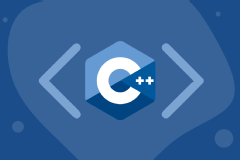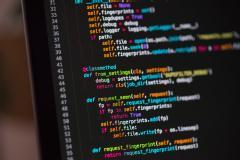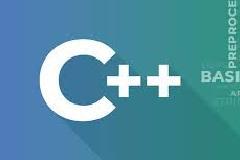Every one from class 8th to PG students who wants to learn basics of c++ in easy way and tricks...
C++ is a general purpose, multi-paradigm programming language. C++ developers often work on both desktop and mobile applications, as well as software that interacts with low-level system and hardware resources. Developers can use C++ to build native modules and applications for a number of platforms, such as Android using Android NDK. C++, being a difficult language to master, requires a developer to spend much time with it.C++ is a cross-platform language that can be used to create high-performance applications.
C++ was developed by Bjarne Stroustrup, as an extension to the C language.
C++ gives programmers a high level of control over system resources and memory.
The language was updated 4 major times in 2011, 2014, 2017, and 2020 to C++11, C++14, C++17,
C++ Object Oriented
Object Oriented Paradigm
OOPS…!
Structured versus Object Oriented Development
Elements of Object Oriented Programming
Objects
Classes
Encapsulation
Data Abstraction
Inheritance
Polymorphism
Templates
Exception Handling
Moving from C to C++
Scope resolution Operator
Variables aliases(reference variables)
Parameters passing by References
Inline functions
Function Overloading
Classes and Objects
Introduction
Structures and Classes
Class specification
Class objects
Class, Objects and memory resources
Accessing class members
Defining Member Functions
Outside member functions as inline
Accessing member functions with in class
Data Hiding
Passing Objects as arguments
Classes and Objects
Friend Classes
Static data members
Static Functions
Constructors and Destructors
Introduction
Need of the Constructor
Parameterized constructor
Constructor overloading
Constructor with default arguments
Name less objects
Copy constructors
New and delete operators
Dynamic initialization through constructors
Operator Overloading
Introduction
Over loadable operators
Unary operator overloading
Operator return values
Name less Temporary Objects
Limitations of Increment and Decrement Operators
Binary Operator Overloading
Overloading New and Delete Operator
Comparison Operators
Data Conversion
Conversion between Data types
Conversion between basic and Objects
Conversion between Objects of different classes
Assignment operator overloading
Overloading with friend functions
Inheritance
Introduction
Derived class declaration
Forms of inheritance
Member Accessibility
Constructors in derived classes
Overloaded Member functions
Abstract classes
Multilevel Inheritance
Multiple Inheritances
Hierarchical Inheritance
Multipath Inheritance
Virtual Base Class
Hybrid Inheritance
Virtual Functions & Polymorphism
Introduction
Need for virtual functions
Pointers of derived class objects
Definitions of Virtual Functions
Pure Virtual Functions
Dynamic Binding
Rules For virtual functions
Templates
Introduction
Function Templates
Overloaded Function Templates
Multiple Argument Function Templates
Class Templates
Class Templates with overloaded operators
Exception Handling
Introduction
Error Handling
Exception Handling
Try, throw, catch
List of Exceptions
Specified, Unspecified exceptions
Handling Uncaught Exceptions
Streams Computation With console
What are streams?
Console Streams
Unformatted, Formatted Console O/P
Manipulating Strings
Creating(string) objects
Manipulating String Objects
Relational Operations
String Characteristics
Object-Oriented Systems Development
Procedure-Oriented Development Tools
Object-Oriented Notations and Graphs
Steps in Object-Oriented Analysis
Steps in Object-Oriented Design
Implementation







